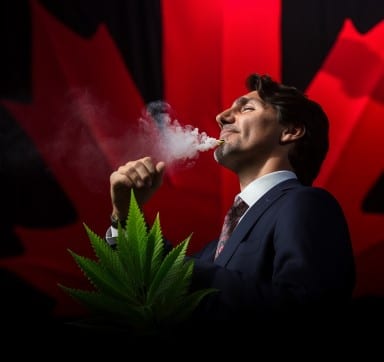The Liberal government has stated emphatically it will not decriminalize marijuana ahead of legalizing the drug.
“The current provisions of the CDSA [Controlled Drugs and Substances Act] regarding marijuana will remain in place until they are replaced by new legislation that will legalize and strictly regulate marijuana,” Ian McLeod, a spokesperson for the Ministry of Justice, said by phone. “Marijuana will not be decriminalized prior to legalization.”
In a separate interview, a spokesperson for federal Health Minister Jane Philpott’s office said the same.
“Until legalization legislation is put through, the current laws and the way it is now will stay in place,” Andrew MacKendrick told the Straight. “So the laws and current laws around marijuana would stay and must be obeyed.”
On April 20, Philpott announced the government will table legislation to legalize marijuana in the spring of 2017.
MacKendrick acknowledged there remains some confusion between the two terms.
“There has been some reporting that the Liberals are going to be putting decriminalization through,” he said. “No. The plan is, in the spring of 2017, to introduce legalization legislation.”
The term legalization means to fully normalize and regulate the sale of marijuana. While the Liberal government has not said exactly how that will occur, the plan could see cannabis controlled and sold in stores similar to how Canada deals with liquor and cigarettes.
On the campaign trail ahead of last October’s federal election, Justin Trudeau repeatedly said that legalizing and strictly regulating both the supply and sale of marijuana would remove it from the hands of organized crime, allow the government to tax the drug, and put in place strict rules that will keep it out of the hands of teenagers.
Decriminalization, on the other hand, only deals with the demand side of marijuana. It would involve removing the drug from the Controlled Drugs and Substances Act to eliminate penalties for possession. Decriminalization does not address supply. Trudeau has argued that decriminalizing cannabis would leave the drug and its profits under the control of organized crime and do nothing to prevent young people from accessing marijuana.
Speaking in the House of Commons on April 20, Trudeau reiterated those arguments during an exchange with NDP Opposition leader Thomas Mulcair, who in 2015 campaigned with a promise to decriminalize marijuana.
“We believe in the legalization and regulation of marijuana because it protects our kids and keeps money out of the pockets of criminal organizations and street gangs,” Trudeau said. “The fact of the matter is that decriminalization, as the member proposes, actually gives a legal stream of income to criminal organizations. That is not what anyone wants in this country.”
The man heading the reform process, Ministry of Justice parliamentary secretary Bill Blair, has repeatedly said police officers should continue to enforce laws that prohibit the possession of marijuana.
“Until Parliament has enacted new legislation and new rules are in place to ensure that marijuana is carefully regulated, current laws remain in force and should be obeyed,” he said in a statement released last February.
In a telephone interview, Jodie Emery expressed her disappointment with the government’s decision to rule out decriminalization.
She said she had hoped cannabis would be removed from the Controlled Drugs and Substances Act—a relatively simple regulatory change—as an interim measure pending the more complicated processes of legalization and the drafting of regulations.
“Legalization could take three years,” the marijuana activist told the Straight. “That’s a lot of arrests still and a lot of the same that people thought we were done with.”
On a related note, Emery said today (April 25) that she began lobbying the federal government for a seat on the task force that the Justice Ministry is assembling to help guide the legalization process.
She said she’s sent letters to the Justice Ministry and the Ministry of Health outlining her qualifications and offering her expertise on the subject. Emery added that it’s her hope the task force will include a range of voices, including people like her who have long served as critics of prohibition.
“I feel that if we can explain the economic benefits of legalization…I can make a good argument for why marijuana legalization should be made a top priority,” she said.
















